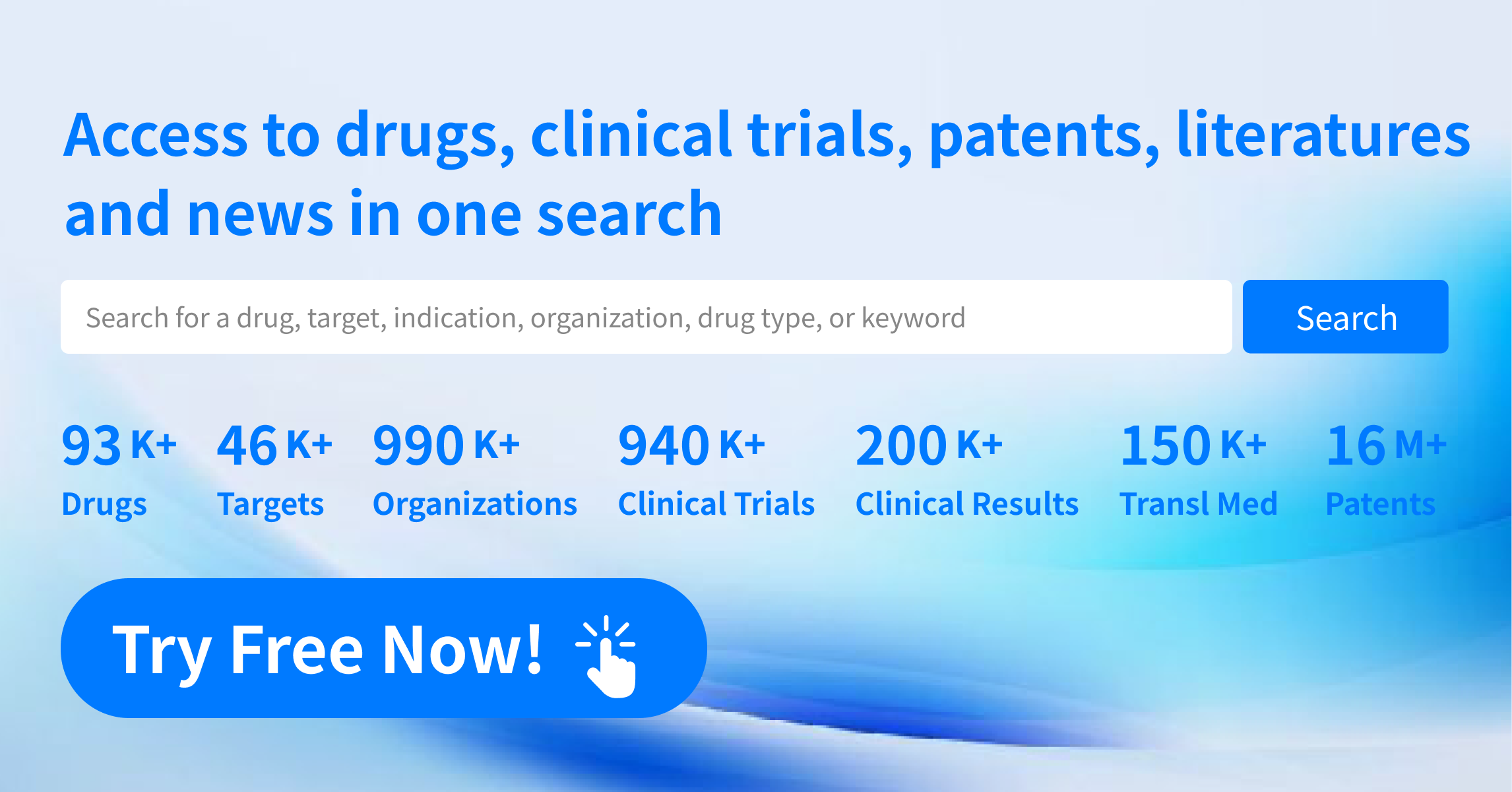Pharma Frontiers: Daily Digest of Global Pharmaceutical News – Sep 6
1.Hengrui Pharmaceutical's JAK1 Inhibitor for Alopecia Areata Application Accepted for Review
On September 5, Hengrui Pharmaceutical announced that the drug marketing authorization application for its JAK1 inhibitor, ivarmacitinib sulfate (SHR0302), has been accepted by China's National Medical Products Administration (NMPA). The application is for the treatment of adult patients with severe alopecia areata. In June 2024, the Phase III clinical trial of ivarmacitinib sulfate met the prespecified efficacy endpoints. The study was a randomized, double-blind, placebo-controlled Phase III trial evaluating the efficacy and safety of ivarmacitinib sulfate tablets in adult patients with severe alopecia areata. In addition to the alopecia areata indication, three other marketing authorization applications for ivarmacitinib sulfate tablets have been accepted by the Center for Drug Evaluation (CDE), targeting moderate to severe atopic dermatitis in adults and adolescents aged 12 and older, ankylosing spondylitis, and moderate to severe active rheumatoid arthritis. The drug is also undergoing clinical studies for various conditions, including ulcerative colitis and psoriatic arthritis, with most of these trials in Phase III. In 2018, Hengrui licensed this drug to Arcutis.
2.Kelun Botai Submits Clinical Application for Bispecific ADC
On September 5, the CDE website indicated that the clinical trial application for SKB571, a new bispecific antibody-drug conjugate (ADC) developed by Kelun Botai, has been accepted. SKB571 is a novel bispecific ADC designed to overcome tumor heterogeneity and improve efficacy. It has demonstrated promising antitumor effects and safety profiles in both human-derived xenograft (PDX) models and cynomolgus monkeys, targeting various solid tumors such as lung cancer and gastrointestinal tumors. On August 19, Kelun Pharmaceutical announced the latest progress in its collaboration with Merck. Merck exercised its option for global rights, excluding Greater China, for SKB571 and paid $37.5 million in cash, with milestone payments to follow based on further progress.
3.Novo Nordisk's Once-Weekly Growth Hormone Submitted for Marketing Approval in China
On September 5, the CDE website showed that Novo Nordisk's new drug application for Somapacitan injection has been accepted. According to public information, this drug is likely Sogroya® (somapacitan), a once-weekly long-acting growth hormone developed by Novo Nordisk. Sogroya® (somapacitan) injection is a human growth hormone analogue similar to the growth hormone produced by the human body and is used to treat adult growth hormone deficiency (AGHD). Sogroya® has been approved in the United States, the European Union, Japan, Australia, and Saudi Arabia. It requires only one subcutaneous injection per week to replace endogenous growth hormone in adult AGHD patients and can also be used to treat children aged 2.5 years and older. A Phase III study in China, targeting children with growth delay due to insufficient growth hormone secretion, has already been completed.
4.Novartis Submits Third Indication for Iptacopan in China
On September 5, the CDE website indicated that Novartis had submitted a marketing application for the third indication of Iptacopan. It is speculated that this indication could be for C3 glomerulopathy (C3G). Iptacopan is an oral CFB inhibitor under development by Novartis. In April of this year, Iptacopan received its first approval in China for the treatment of adult patients with paroxysmal nocturnal hemoglobinuria (PNH). On May 25, Novartis announced the latest Phase III data for Iptacopan in treating C3 glomerulopathy (APPEAR-C3G, NCT04817618). The results showed that after six months of treatment, Iptacopan reduced proteinuria (as measured by 24-hour UPCR) by 35.1% (p=0.0014) compared to placebo, which was both clinically and statistically significant. Currently, Iptacopan is approved globally for two indications: paroxysmal nocturnal hemoglobinuria and IgA nephropathy.
5.Roche's Bispecific Cancer Drug Files New Indication for Approval in China
On September 5, the CDE website indicated that Roche’s new drug application for Glofitamab injection for a new indication has been accepted, though the specific indication has not yet been disclosed. Glofitamab is a bispecific T-cell engager targeting CD20 and CD3. Based on Roche's official website and publicly available information, the new indication is likely for the treatment of diffuse large B-cell lymphoma (DLBCL) in combination with gemcitabine and oxaliplatin for patients who are ineligible for autologous stem cell transplant (2L+ DLBCL). Glofitamab features a unique 2:1 structure, with two protein domains that bind to CD20 and one that binds to CD3. This dual-targeting approach brings T-cells closer to B-cells, activating the T-cells to release cytotoxic proteins that kill cancer cells. Additionally, when combined with approved anti-CD20 monoclonal antibodies, the efficacy improves. In June 2023, the U.S. FDA granted accelerated approval for Glofitamab for the treatment of relapsed or refractory DLBCL or large B-cell lymphoma (LBCL) caused by follicular lymphoma in adults who have undergone at least two prior lines of systemic therapy. The product is expected to be approved in China in November 2023.
6.Roche’s BTK Inhibitor Shows 96% Relapse-Free Rate After One Year in Phase II Trial
On September 5, Roche announced new data from the open-label extension (OLE) of the Phase II trial FENopta, evaluating the oral BTK inhibitor fenebrutinib. FENopta is a global, randomized, double-blind, placebo-controlled Phase II trial lasting 12 weeks, aimed at studying the efficacy, safety, and pharmacokinetics of fenebrutinib in 109 adults aged 18-55 with relapsing multiple sclerosis (RMS). Results show that after one year of treatment with fenebrutinib, 96% of patients remained relapse- and progression-free, with an annualized relapse rate (ARR) of 0.04. Additionally, no change in disability, as measured by the Expanded Disability Status Scale (EDSS), was observed over 48 weeks. Detailed data will be presented at the 40th Congress of the European Committee for Treatment and Research in Multiple Sclerosis (ECTRIMS). Currently, three Phase III trials involving fenebrutinib are ongoing, with results expected by the end of 2025.
7.Nucleic Acid Drug Platform HAYA Partners with Eli Lilly to Develop New Targets for Obesity
On September 4, HAYA Therapeutics announced a multi-year collaboration agreement with Eli Lilly. The partnership will leverage HAYA's advanced RNA-guided regulatory genome platform to support preclinical drug discovery for obesity and related metabolic diseases. The partners will identify multiple RNA targets derived from the regulatory genome to treat these chronic conditions. Under the terms of the agreement, HAYA will receive an upfront payment, including equity investment, and is eligible for up to $1 billion in preclinical, clinical, and commercial milestone payments, as well as royalties on product sales. HAYA is a pioneering biotechnology company focused on targeting chronic diseases through precision RNA-guided regulatory genome therapies.
8.Acepodia Enters R&D Collaboration with Pfizer
On September 5, Acepodia announced a strategic clinical collaboration with Pfizer’s division, Pfizer Ignite, to jointly support the development of its investigational therapies in the field of autoimmune diseases. Pfizer Ignite draws upon Pfizer’s extensive resources, scale, expertise, and successful experience in breakthrough drug development to help biotech companies accelerate innovation from preclinical research through the entire development lifecycle. Under this agreement, Pfizer Ignite will provide strategic guidance and resources to Acepodia to advance its potential first-in-class cell therapies for cancer and autoimmune diseases. Acepodia's Antibody Cell Conjugate (ACC) platform employs bio-orthogonal chemistry to create off-the-shelf CAR-T cell therapies without the need for genetic engineering. This approach facilitates scalable production and mitigates the common side effects of CAR-T therapies, such as cytokine release syndrome and neurotoxicity. Acepodia's first clinical-stage candidate, ACE1831, is an off-the-shelf γδ2 T cell therapy targeting CD20. It is currently undergoing a Phase 1 human clinical trial for patients with non-Hodgkin's lymphoma and has shown strong and durable efficacy even after a single treatment at the lowest dose.
How to obtain the latest research advancements in the field of biopharmaceuticals?
In the Synapse database, you can keep abreast of the latest research and development advances in drugs, targets, indications, organizations, etc., anywhere and anytime, on a daily or weekly basis. Click on the image below to embark on a brand new journey of drug discovery!




